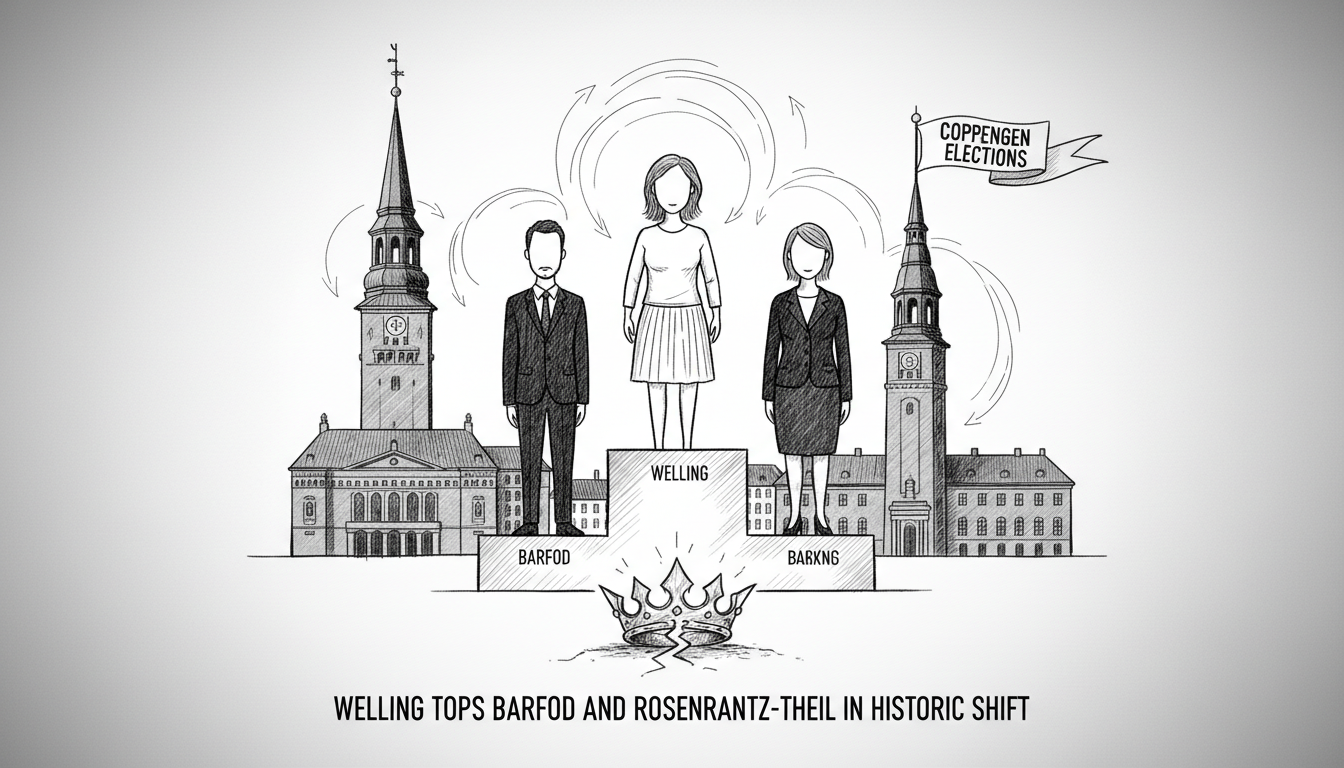Sisse Marie Welling from the Socialist People's Party has secured the most personal votes in Copenhagen's municipal election. The incoming mayor received 20,924 personal votes, representing 6 percent of the total. This places her ahead of both Line Barfod from the Red-Green Alliance and Pernille Rosenkrantz-Theil from the Social Democrats.
Barfod received 18,574 personal votes while Rosenkrantz-Theil gathered 11,808 votes. The election results mark a historic shift in Copenhagen's political landscape. On Wednesday morning, it became clear that the Socialist People's Party had formed a governing coalition without the Social Democrats. This ends more than a century of Social Democratic leadership in the Danish capital.
Welling expressed optimism about the political change during a press conference at Copenhagen City Hall. She stated she believes it is healthy for the city that power is not always predetermined and that new forces can emerge. She also expressed enthusiasm about beginning work with her new colleagues.
Despite Welling's personal popularity, her party did not become the largest in Copenhagen. The Red-Green Alliance secured that position with 22 percent of the vote. The Socialist People's Party received 17.9 percent while the Social Democrats obtained 12.7 percent. This represents a 4.5 percentage point decline for the Social Democrats compared to the previous municipal election.
Jakob Næsager from the Conservative People's Party emerged as the fourth most popular candidate with 10,944 personal votes. His party secured 11.4 percent of votes in Copenhagen.
The Copenhagen City Council consists of 55 seats with one lord mayor and six mayors overseeing different administrative areas. The distribution of mayoral positions reflects each party's representation in the council.
Several key appointments have been confirmed. Line Barfod will continue as technical and environmental mayor while Jakob Næsager remains children and youth mayor. Karina Vestergård Madsen from the Red-Green Alliance continues as social mayor.
The culture and leisure mayor position will see new leadership. Christopher Røhl from the Social Liberal Party takes over from his party colleague Mia Nyegaard. Pernille Rosenkrantz-Theil becomes employment, integration and business mayor while Jens-Kristian Lütken assumes the health and care mayor position.
This political realignment represents one of Copenhagen's most substantial shifts in decades. The exclusion of the Social Democrats from the governing coalition after their long dominance signals changing voter preferences. The new configuration may bring different approaches to urban development, climate policy and social services in Denmark's capital city.
International observers note that Copenhagen's political transformation reflects broader trends in Nordic urban centers. Cities like Stockholm and Oslo have also seen traditional social democratic parties facing increased competition from both left and right alternatives. The election outcome suggests Copenhagen voters sought fresh leadership while maintaining a progressive direction.

